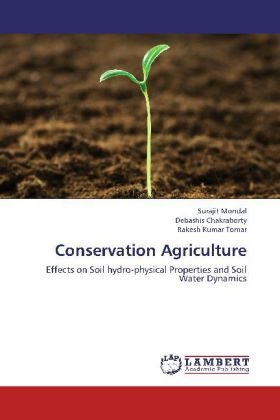Description
Product details
| Authors | Debashi Chakraborty, Debashis Chakraborty, Suraji Mondal, Surajit Mondal, Rakes Tomar, Rakesh Kumar Tomar |
| Publisher | LAP Lambert Academic Publishing |
| Languages | English |
| Product format | Paperback / Softback |
| Released | 27.09.2012 |
| EAN | 9783659240263 |
| ISBN | 978-3-659-24026-3 |
| No. of pages | 124 |
| Subject |
Natural sciences, medicine, IT, technology
> Biology
> Agriculture, horticulture; forestry, fishing, food
|
Customer reviews
No reviews have been written for this item yet. Write the first review and be helpful to other users when they decide on a purchase.
Write a review
Thumbs up or thumbs down? Write your own review.

